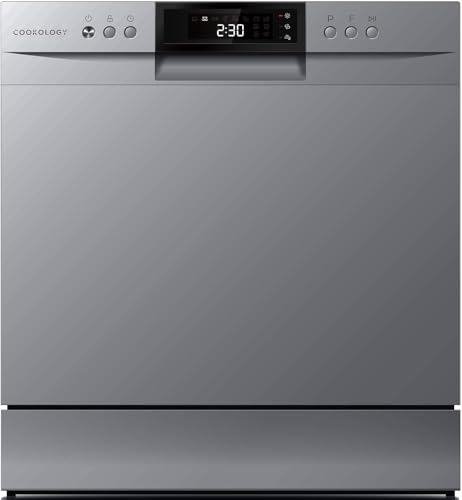




When it comes to doing the dishes, using a dishwasher can make your life much easier. No more standing at the sink for hours scrubbing away grime – just load up the dishwasher, select the program, and let it do the hard work for you. But with so many different programs to choose from, it’s important to understand exactly what each one does and when to use it.
Most dishwashers will have a range of programs to suit your needs. One of the most common programs is the ‘auto’ program. This program uses a sensor to determine how dirty your dishes are and adjust the wash cycle accordingly. It’s a great option if you’re not sure which program to use or if you have a mix of lightly soiled and heavily soiled dishes.
If you’re in a hurry and need your dishes washed quickly, then the ‘quick’ or ‘fast’ program will be your best bet. This program typically washes dishes at a higher temperature and for a shorter amount of time, meaning your dishes will be clean and ready to use in no time at all.
On the other end of the spectrum, if you have heavily soiled dishes with dried-on food, the ‘heavy’ or ‘tough’ program is what you need. This program uses a longer wash cycle with more heating and higher water pressure to tackle those tough stains and clean your dishes effectively.
Dishwasher Programs: Understanding The Options
When it comes to dishwasher programs, there are many options to choose from. Understanding the different programs available can help you make the most out of your appliance and get the best results.
Main Program Categories
- Automatic: This program is ideal for when you’re not sure which program to choose. The dishwasher will determine the best program for the load based on the sensors.
- Heavy: This program is designed for heavily soiled dishes and pots. It uses longer and hotter cycles to ensure a thorough cleaning.
- Eco: If you want to save energy and water, the Eco program is the way to go. It uses less water and energy compared to other programs.
- Glass: This program is specifically designed to be gentle on glassware, preventing any potential damage.
- Turbo: The Turbo program is perfect when you’re in a hurry and need your dishes washed quickly. It reduces the cycle time but may not provide the same level of cleaning as other programs.
Other Program Options
- Rapid: This program is similar to the Turbo program but is intended for smaller loads. It can wash dishes in as little as 15 minutes.
- Express/Quick/1-Hour: These programs are designed to wash dishes quickly, usually in about an hour.
- Sensor: Some dishwashers have a sensor that detects the level of dirtiness and adjusts the program accordingly. This ensures an optimal cleaning result without wasting resources.
- Pre-wash/Rinse: This program is useful for removing any leftover food particles or rinse residue before starting a full wash.
Choosing the Right Program
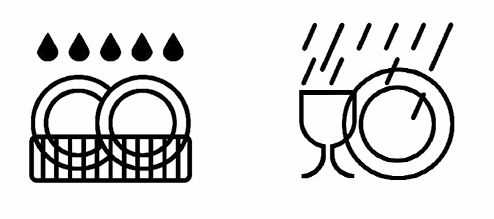
Choosing the right program depends on the specific needs of your load. For general everyday dishes, the Automatic or Eco program will likely be sufficient. Heavy or tough stains may require the Heavy program, while delicate glassware should be washed with the Glass program.
If you’re in a hurry, the Turbo, Rapid, Express, or Quick programs can help wash your dishes faster. If you’re unsure, the Automatic program will choose the best option for you.
Tips to Keep in Mind
- Always make sure to scrape off excess food before loading the dishwasher.
- Avoid overloading the dishwasher, as this can lead to subpar cleaning results.
- If you’re experiencing problems with your dishes not getting clean, you may need to adjust the program or check for any maintenance issues with your appliance.
- Choose the program that best suits your needs to save time, energy, and money.
Understanding the different dishwasher program options will help you make the most out of your appliance and ensure your dishes come out clean every time. Whether you need a fast wash, an energy-saving cycle, or a heavy-duty clean, there’s a program that’s perfect for you.
Quick Wash vs. Normal Cycle: Which is Right for You?
When it comes to choosing the right dishwasher program, you may find yourself overwhelmed with the many options available. Two of the most common cycles you’ll find on dishwasher machines are the Quick Wash and Normal Cycle. But what exactly do these cycles entail, and which one should you use?
Quick Wash Cycle
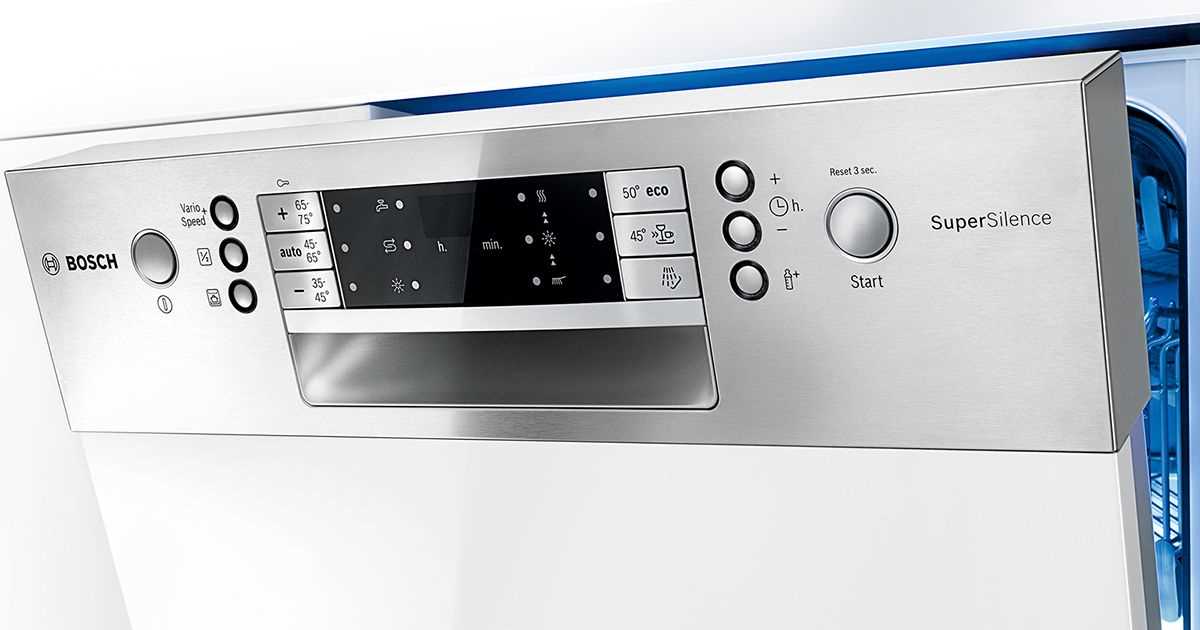
- The Quick Wash cycle, also known as the Express or Quick cycle, is designed for those times when you need your dishes cleaned in a hurry.
- This cycle typically lasts around 30 minutes to 1 hour, depending on the make and model of your dishwasher.
- It is a great option for lightly soiled dishes or when you need to refresh your dishes quickly.
- However, keep in mind that the Quick Wash cycle may not thoroughly sanitize your dishes, so it’s best to avoid using it for heavily soiled or germ-ridden items.
Normal Cycle
- The Normal Cycle, also referred to as the Main or Standard cycle, is the go-to option for regular everyday cleaning.
- This cycle is usually more thorough and intensive, running for about 2 to 3 hours.
- It can handle a variety of dishware, from lightly soiled to heavily soiled dishes.
- During the Normal Cycle, the dishwasher will automatically adjust the settings to ensure a thorough cleaning, including pre-wash, main wash, rinse, and drying.
- This cycle is ideal for removing tougher dirt and grime, providing a more sanitizing clean than the Quick Wash cycle.
So, which cycle should you choose? It depends on your needs and the state of your dishes.
- If you’ve just had a quick meal and the dishes aren’t heavily soiled, the Quick Wash cycle will likely do the job well.
- However, if you have more heavily soiled dishes, or if you want a more thorough and sanitizing clean, the Normal Cycle is your best bet.
- If you’re unsure, most dishwashers have an automatic sensing feature that will determine the appropriate cycle based on the load you’ve put in.
Remember to check your dishwasher’s user manual for specific instructions and recommendations for each program. It’s essential to understand what each cycle and setting mean to ensure you’re using your dishwasher effectively and efficiently.
Whether you choose the Quick Wash or Normal Cycle, both options can help make your dishwashing experience easier and save you time. So, pick the cycle that suits your needs and let the dishwasher do the rest!
Eco-Friendly Programs: Saving Water and Energy

When it comes to dishwashers, most people are concerned about two things: getting their dishes clean and saving water and energy. This is where the eco-friendly programs come in.
The main goal of eco-friendly programs is to reduce the risk of wasting water and energy. These programs save both resources by using lower temperatures and less water than the other programs. Sometimes they might take a little longer, but they get the job done while using less energy and water.
But what exactly does an eco-friendly program do to help with saving water and energy? The answer lies in the different settings and features that these programs offer.
Program Names
Eco-friendly programs go by different names depending on the brand and model of the dishwasher. Some common names include Eco, Eco mode, Energy Saver, Energy Efficient, and Green.
Temperature and Water Usage
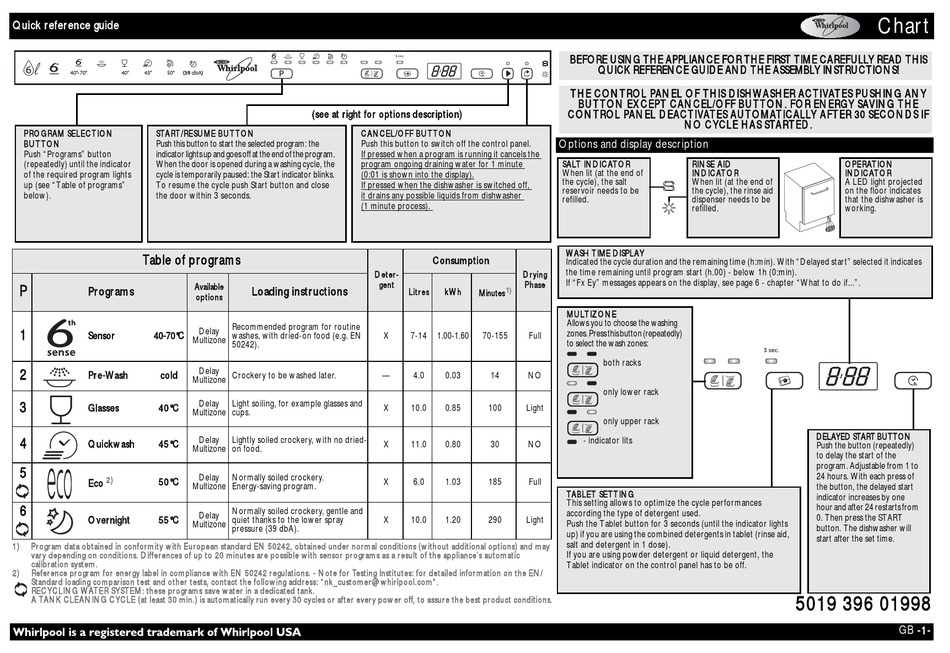
When choosing the eco-friendly program, the dishwasher automatically sets the temperature and water usage to levels that are considered more energy and water efficient. This means that you don’t need to worry about adjusting any settings yourself.
Eco-friendly programs also tend to avoid a pre-wash or rinse cycle, saving even more water. Instead, they rely on the main cleaning cycle to remove any dirt and food particles from the dishes.
Sensor Programs
Some eco-friendly programs come with a ‘sensor’ feature. This feature uses sensors to detect how dirty your dishes are and adjusts the water and energy usage accordingly. It saves water and energy by not running for longer than necessary.
The ‘sensor’ feature can also be referred to as ‘auto’, ‘autosensor’, ‘smart’, or ‘turbo’ depending on the brand and model of the dishwasher.
Thorough Cleaning
Even though eco-friendly programs use lower temperatures and less water, they still provide a thorough cleaning. They are designed to remove most of the dirt and grime from your dishes, pots, and pans.
However, if you have tough, dried-on food or stains, you may need to use a more intensive program or choose additional settings to get your dishes completely clean.
Time-Saver
If you’re in a hurry and need your dishes cleaned quickly, the eco-friendly program might not be the best option. It generally takes a bit longer to complete compared to other programs. However, the energy and water savings are worth the wait if you’re concerned about the environment.
Browse Your Options
When you’re choosing a dishwasher with eco-friendly programs, make sure to browse all the options available. Look for programs that offer the perfect balance between energy and water saving and good cleaning performance. Some dishwashers even come with additional eco-friendly features, like half-load options for smaller loads.
Ultimately, the choice of whether to use an eco-friendly program or not depends on your priorities. If you want to save water and energy and don’t mind a longer cleaning time, then the eco-friendly program is a great choice. But if you’re in a hurry and just want your dishes cleaned as quickly as possible, other programs might be more suitable for your needs.
Intensive Clean: Tackling Tough Stains and Dirt
The Intensive Clean program is designed specifically for tackling tough stains and dirt on your dishes. This program is perfect for those heavily soiled loads that need a more powerful cleaning cycle than what other programs provide.
When you have dishes that are caked with dried-on food, coffee stains, or other stubborn dirt, the Intensive Clean program is exactly what you need. This program has been specially designed to blast away these tough stains and leave your dishes spotless and sparkling clean.
The Intensive Clean program starts with a pre-wash phase that helps to loosen and remove any stuck-on food particles. Then, the cycle uses high temperature and strong water pressure to tackle the toughest stains. This means that no matter how tough the dirt may be, the Intensive Clean program can handle it.
It is important to note that the Intensive Clean program takes longer than other programs to complete. This is because it needs the extra time to ensure that all the tough stains and dirt are fully removed from your dishes. So, if you are in a hurry, this program may not be the best choice for you.
When using the Intensive Clean program, you should also be mindful of the materials your dishes are made of. Delicate items may not be suitable for this program as the high temperature and strong water pressure could cause damage. It is always a good idea to check the manufacturer’s recommendations before using this program with delicate dishes.
In summary, the Intensive Clean program is a powerful cleaning option for tackling tough stains and dirt on your dishes. It uses high temperature and strong water pressure to ensure a thorough clean. Just be mindful of the longer cycle time and the suitability for delicate items.
Sensor Technology: Automating the Dishwashing Process
If you’ve ever stood in front of your dishwasher, unsure of which program to choose, then sensor technology may be the answer to your woes. This intelligent feature can take the guesswork out of dishwashing and ensure that your dishes come out sparkling clean every time.
Sensor technology in dishwashers works by detecting the level of dirt and grime on your dishes. It uses sensors to determine how much cleaning power is needed and adjusts the program accordingly. This means that you no longer have to worry about choosing the wrong program and ending up with glasses covered in soap scum or delicate china broken in an intensive wash cycle.
So, how does it work? When you load your dishwasher, the sensor technology kicks in. It scans the dishes and calculates the optimal settings for the specific load. For example, if you’ve loaded a combination of heavily soiled pots and pans and delicate wine glasses, the sensor will likely choose a longer and more intensive program for the dirty dishes and a shorter, more delicate rinse for the glassware.
One of the major benefits of sensor technology is its time-saving capabilities. Since the sensors can determine the level of dirt and adjust the program accordingly, it can cut down the wash time significantly. Instead of running a pre-wash cycle to remove excess food particles, the sensor will automatically know when a thorough wash is needed. This can save you both time and energy, making your dishwasher a true daily time-saver.
In addition to time-saving, sensor technology also ensures that your dishes are cleaned at the right temperatures. The sensors can detect when the water is not hot enough to sanitize your dishes and adjust the temperature accordingly. This means that your dishes will come out not just clean, but also hygienically sanitized.
Some dishwashers even have a sensor that can detect if your load is a half-load or a full-load. This means that if you have a small load, the sensor will adjust the program to use less water and energy, saving you even more. This feature is especially helpful if you find yourself running your dishwasher frequently with smaller loads.
Automatic Programs with Sensor Technology
Most dishwashers with sensor technology will have a variety of automatic programs to choose from. These programs go by different names depending on the brand and model of your machine. Some common names you might see include:
- AutoSensorSmart
- Express/Quick/1-Hour
- Eco
- Half-Load
Each of these programs is designed to optimize the wash cycle based on the level of dirt and the type of dishes being washed. So whether you have a load of heavily soiled pots and pans or just a few lightly soiled plates, there’s an automatic program with sensor technology that will get the job done.
In conclusion, sensor technology is a game-changer when it comes to dishwashing. It takes the guesswork out of choosing the right program, saves you time and energy, and ensures that your dishes come out sparkling clean. So next time you’re standing in front of your dishwasher, unsure of which program to choose, let the sensors take over and enjoy a hassle-free dishwashing experience.
Delicate Items: How to Safely Wash Glassware and China
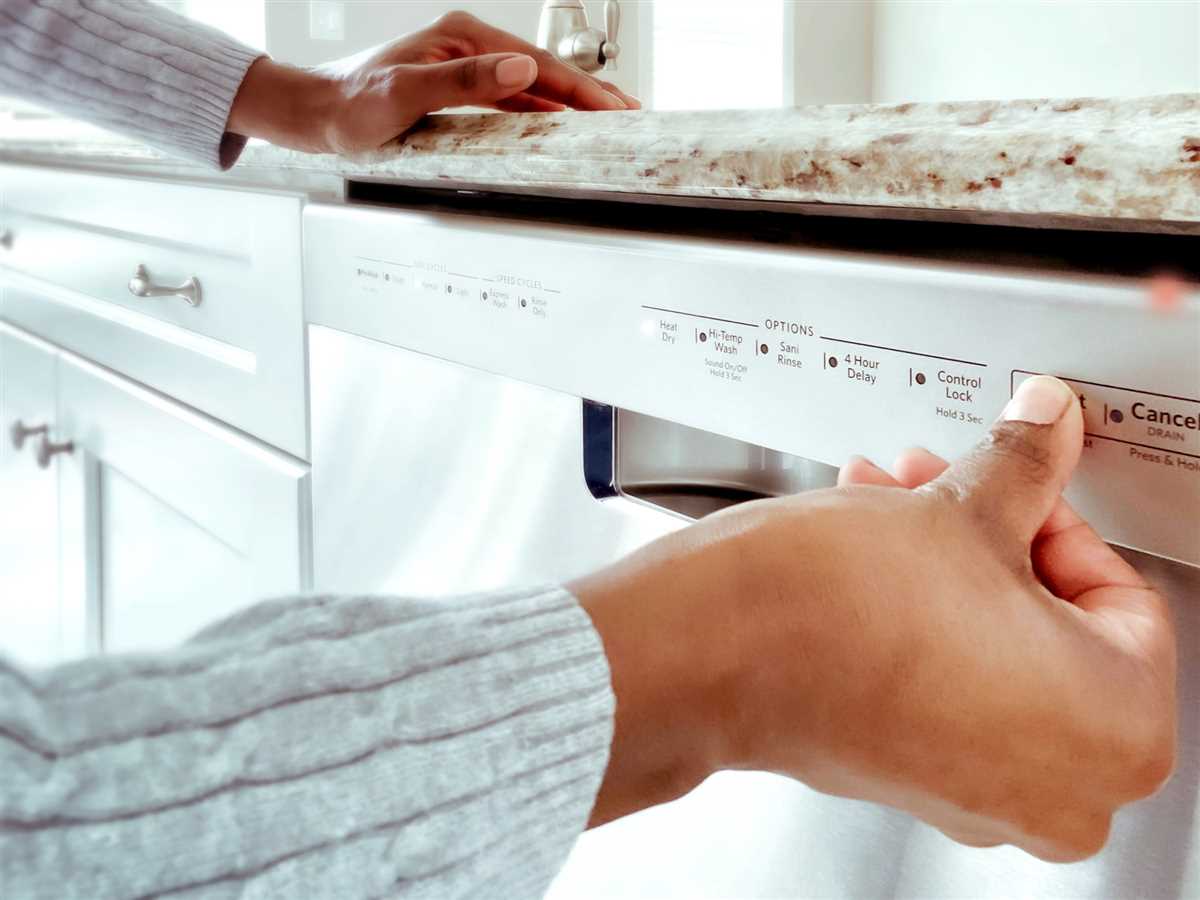
If you’re in need of a fast and efficient way to clean your delicate glassware and china, look no further than your dishwasher. When it comes to delicate items, it’s important to know what dishwasher program to use and how to properly load your dishwasher to avoid any damage.
Choosing the Right Program
When washing delicate items, you’ll want to use a program that is specifically designed for this purpose. Most dishwashers offer a “delicate” or “glassware” program, which uses a lower temperature and a gentler spray to prevent any breakage or damage. If your dishwasher doesn’t have a specific delicate program, look for a program with a lower temperature and shorter cycle time.
Properly Loading the Dishwasher
When loading delicate items into your dishwasher, it’s important to take extra care. Here are some tips to help you load your dishes safely:
- Place glassware and china securely on the top rack of the dishwasher to avoid any risk of them being knocked over or damaged by other heavier dishes below.
- Avoid stacking delicate items on top of each other, as this can lead to scratches or breakage. Instead, place them in separate sections of the dishwasher rack.
- Ensure that each delicate item is spaced out and not touching any other dishes to prevent any chipping or clashing during the wash cycle.
Using the Delicate Program
Once you’ve loaded your delicate items into the dishwasher, it’s time to select the appropriate program. Choose the delicate program or any similar program that offers a gentle wash and a shorter cycle time. This will help to ensure that your delicate items are cleaned thoroughly without any risk of damage.
If your dishwasher doesn’t have a specific delicate program, you can use the “normal” program with some adjustments to make it more suitable. Lower the temperature, reduce the wash time, and select a gentler wash option if available.
It’s also important to note that using the delicate program or a similar program will help save energy, as these programs are designed to use less water and electricity compared to heavy-duty programs.
Extra Precautions
If you’re still concerned about putting your delicate items in the dishwasher, you can take some extra precautions to ensure their safety. Consider rinsing your delicate items by hand before placing them in the dishwasher to remove any leftover food or residues.
If you have other delicate items that are too fragile for the dishwasher, such as antique china or hand-painted glassware, it’s best to wash them by hand to avoid any risk of damage.
By following these tips and using the appropriate dishwasher program, you can safely wash your delicate glassware and china without worrying about any damage or breakage.
FAQ
What is the Delicate Glass Wash program for?
The Delicate Glass Wash program is specifically designed for washing delicate glassware and fragile dishes. It uses lower water pressure and milder temperatures to ensure that the glasses are cleaned without any risk of damage.
Can I use the Delicate Glass Wash program for other types of dishes?
While the Delicate Glass Wash program is primarily designed for glassware, it can also be used for other delicate dishes such as fine china or porcelain. However, it is not suitable for heavily soiled or greasy dishes.
Does the Delicate Glass Wash program take longer to complete?
Yes, the Delicate Glass Wash program usually takes longer to complete compared to other dishwasher programs. This is because it uses gentler washing cycles to protect fragile glassware, resulting in a longer overall cleaning time.
Can I use regular dishwasher detergent with the Delicate Glass Wash program?
Yes, you can use regular dishwasher detergent with the Delicate Glass Wash program. However, it is recommended to use a smaller amount of detergent or a detergent specifically formulated for delicate wash cycles to avoid any potential residue or damage to the glassware.











